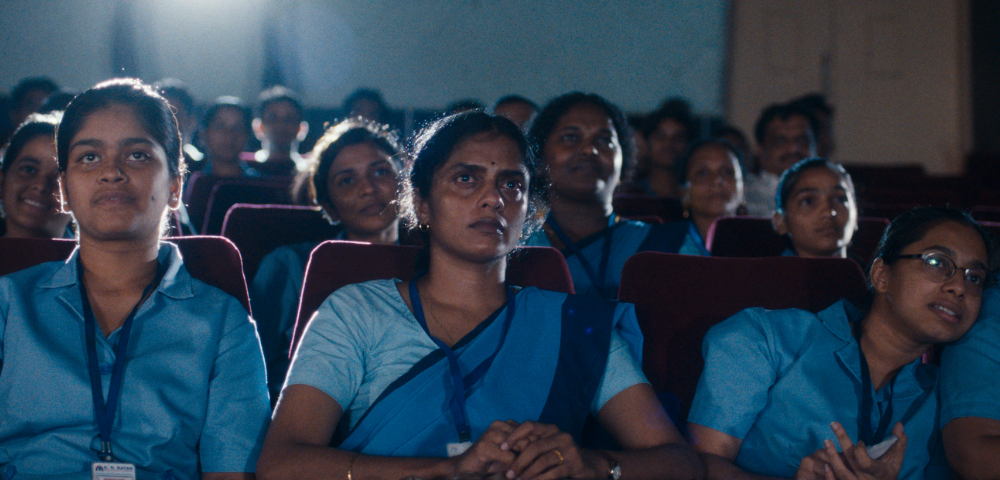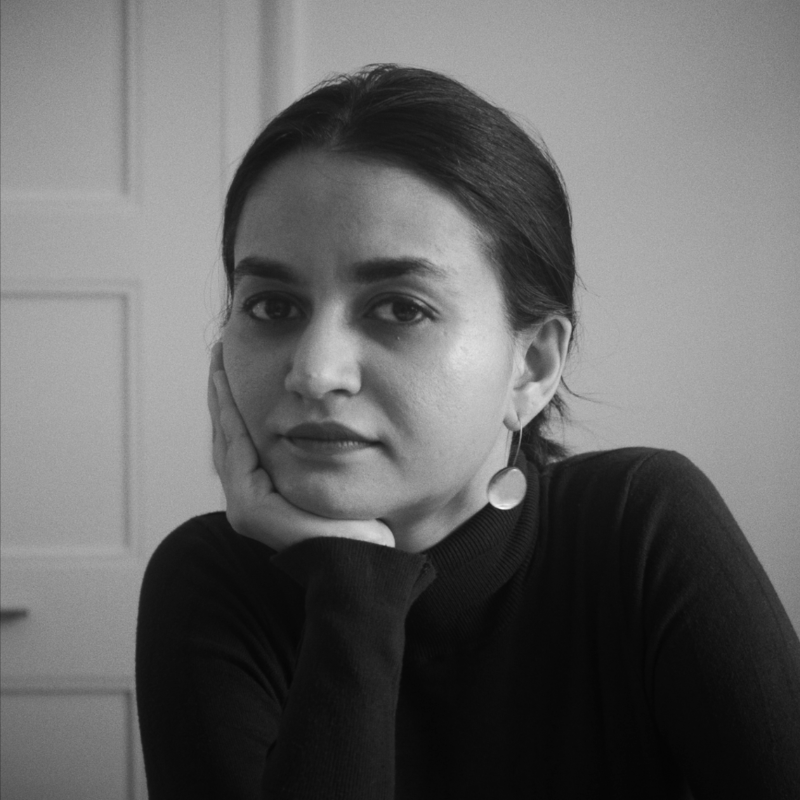
All We Imagine As Light: A Tender Ode to Sisterhood

Written and directed by Payal Kapadia, All We Imagine As Light is a slow-burning visual poem inspired by her observations of ever-composed nurses during her grandmother’s hospital stay. Paired with a title borrowed from her mother’s painting, the film has captivated critics and swept the awards circuit.
Set against the shimmering yet unforgiving backdrop of Mumbai, All We Imagine As Light intimately explores sisterhood, offering a nuanced portrayal of women navigating societal constraints and personal desires.

The story follows the lives of three women from different generations who work at a local hospital in Mumbai, each grappling with their own dilemmas.
Nurse Prabha’s routine is disrupted by an unexpected gift from her estranged husband. Anu, her younger roommate, struggles to find a spot in the city to explore her interfaith romance, while Parvaty, a widow, faces the uncertainty of relocating. Finally, a trip to a beach town where the women find solace in self-discovery and camaraderie.
All We Imagine As Light is a slow-burn slice-of-life narrative that may not appeal to those seeking a fast-paced drama—or diagnosed with ‘I can’t watch a 2-hour long movie’ syndrome. Some might consider the film too slow but it offers respite for those willing to savour its meditative pace and unexpected humour.
The film’s portrayal of female solidarity is worlds away from your typically shallow ‘girlboss’. Instead, Kapadia presents a realistic and nuanced portrayal of Indian women ensnared in patriarchy, societal expectations and class divides. Seamlessly woven with India’s socio-cultural fabric— touching on interreligious relationships and identity– All We Imagine As Light explores love and shared human experience.
All We Imagine As Light: A hazy dream grounded in the stark reality of Mumbai
Kapadia’s direction enchants, marrying dreamlike romanticism with stark realism. The imposing yet isolating energy of bustling Mumbai is a vivid character, juxtaposed against the honeyed-calm of Ratnagiri. Inspired by Mumbai’s cinematic history, Kapadia captures the city’s duality: a place of impermanence bolsters and shatters illusions, where everything shines like gloss but often feels empty on the inside.
Visually, the film evokes the aesthetics of Wong Kar Kwai and Apichatpong Weerasethakul, with mesmerising shots that elevate the mundane. Lingering frames– a curtain blowing in the wind, a buzzing forest, hesitant glances– imbue emotional gravity to the ordinary.
The piano notes heavily present throughout lull you further into the atmosphere of the film and its characters. Particularly the delicate piano trills accompanying Anu’s presence.

The cast delivers grounded, nuanced performances, speaking volumes through strong dialogue and silent actions. Divya Prabha as Anu stands out with her magnetic presence, blending swagger with vulnerability. Her character asserts agency while wearing her heart on her sleeve. She feels precocious yet shy demeanour while unapologetically bold.
While I can’t fully relate to her, I found myself wanting to be her, a woman who knows what she wants, even if it’s sneaking out to meet her boyfriend. ( Can’t relate but I’ve definitely covered for plenty of friends like Anu.)
Kani Kusruti’s restrained portrayal of Prabha conveys profound emotion with unflinching stares and subtle glances. Her playful moments, like wincing while drinking alcohol and doting on their pet cat, brings a lightness to her complex character.
Meanwhile Chhaya Kadam’s performance as Parvaty is both heartwarming at times and heartbreaking, embodying resilience while quietly grappling with her own melancholia.
Regardless of language or cultural barriers, these women’s kinships resonate universally. I couldn’t help but smile as the trio danced and drank together, immersed in their palpable connection.
Although the film is in Malayalam and Hindi (I can’t speak a lick of either), its universal appeal ensures little is lost in translation.
Payal Kapadia’s All We Imagine As Light is a tender ode to sisterhood in the face of sociopolitical turmoil and the quiet beauty of ordinary life.
★★★★½
All We Imagine As Light is playing in select theatres now.









